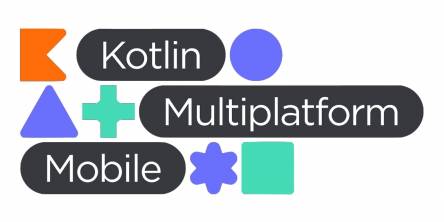Choosing the Optimal Cloud Solution for Your Business: A Comparative Analysis

In this digital era cloud computing has become an integral part of business operations. It is flexible, scalable, and cost-effective, making it a top choice for many organizations. But with the arrival of various kinds of cloud solutions, selecting which one's right for your business can be a bit overwhelming. These two popular choices are often confusing to businesses: the multi-cloud and the hybrid cloud. They both have their pros and cons, but the differences between the two also make them better suited for different applications.
We will pull back the curtain of cloud computing in this blog and look at the characteristics, advantages, and applications of multi-cloud and hybrid cloud, to enable you to select the one that best meets your business needs. So, let's start the battle of the clouds: Finding the right solution for your business.
Understanding Cloud Computing Models
In cloud computing, there are three primary service models that reign supreme: Infrastructure as a Service (IaaS), Platform as a Service (PaaS), and Software as a Service (SaaS). Each serves its own particular wants. IaaS gives you access to virtualized computing resources, which is like a digital playground where you can form and arrange your data. PaaS goes one step further; it is a complete environment for developing and running software applications, a metaphorical toolbox for software construction. Finally, SaaS abolishes the concrete installation of software, so you can use applications from a website on a subscription basis, turning software use into child's play. These models are the main building blocks for cloud services, with each model having its own advantages for businesses that want to cut costs.
What is a Multi-Cloud System?
For the whole of cloud computing, a multi-cloud system could be just what your business needs to change the game. It's a strategy that steps not one but many cloud services, from many vendors. The magic of it all? For businesses, it provides a way to spread their workloads out among different clouds. This could dramatically slash data loss and downtime risks. So try this on Now imagine that the data and applications most critical to your business live in a constantly changing network of clouds, each having its own characteristics. This is the beauty of a multi-cloud system--it's a diversified, redundant, and flexible environment.
Advantages of a Multi-Cloud System
A multi-cloud system, by diversifying your cloud portfolio, can prove a game-changer for your business, serving up a banquet of benefits. One major advantage is an escape from vendor lock-in, freeing you up to switch vendors based on your current requirements and future strategies. This flexibility not only allows you to play to the advantages of different vendors, it also lays the groundwork for more competitive pricing. Another layer of protection is provided by the multi-cloud model. With your workloads distributed across a number of clouds, you minimize the risk of data loss and downtime. It's like not putting all your eggs in one basket--a safer, more balanced way. Another benefit is higher performance: this model lets you choose cloud services nearer your users, thus reducing latency. Put simply, a multi-cloud system gives you a bespoke cloud experience, tailor-made to fit your needs.
Challenges of a Multi-Cloud System
While the benefits of multi-cloud systems are indeed impressive, getting there is not without its obstacles. When so many platforms are in action then the field is wide open, and the management structure easily becomes a labyrinth, requiring one to have a highly qualified workforce to avoid potential tragedies. The issue of data sovereignty also becomes undone, since data regulations are diverging among various regions, so grasping international data laws as a whole becomes imperative. Moreover, without adequate supervision, the costs of multi-cloud systems can increase rapidly, so that what looked to be an advantage at first actually becomes a financial burden. Therefore, though multi-cloud systems have an abundance of advantages to offer, getting the most out of them requires proper planning and skilled management.
Boost your bottom line: Hire web developers and leverage the cloud to streamline operations, reduce costs, and unlock new revenue streams.
What is a Hybrid Cloud System?
Setting out to explore the realm of hybrid cloud systems? Let's clarify the terrain. A hybrid cloud system is a finely-tuned melting-point of private and public cloud services, creating a bridge allowing data and applications to flow back and forth unimpeded between the two. Now, imagine that instead of having to make the painful choice of either flexibility and diverse options or control and security, your business environment was flexible enough to accommodate both a private cloud and public cloud at the same time, and both were working for you. Such a system offers a greater variety of ways it can be deployed and provides businesses the ability to rapidly adjust and expand as circumstances dictate needs. Cake and eat, cake and eat It is the best of cloud computing, delivered in one neat package.
Benefits of a Hybrid Cloud System
Hybrid cloud systems offer a variety of different benefits. The combination of public and private cloud services provides an attractive mixture of agility, security, and control. A hybrid cloud system allows you to use the broad range of services and resources that the public cloud offers at your disposal while maintaining the ability to protect highly sensitive data on your private cloud. This promotes cost efficiency because you only pay for extra computing power when you need it, leading to an efficient use of resources. Another advantage is the uninterrupted flow of business. Should there be an outage, data, and applications can still be easily accessed from the secondary cloud to keep operations running smoothly. Furthermore, a hybrid system allows you to build on top of your existing IT infrastructure, minimizing the need for large upfront investments. All around, therefore, it's a happy medium.
Challenges of a Hybrid Cloud System
Hybrid cloud systems are indeed loaded with all kinds of advantages, but maneuvering this landscape is not without headaches. The balancing act of operating both private and public cloud environments could mean complications. It also requires a deep knowledge of both realms. In addition, it requires technical expertise to integrate and manage these different systems effectively. Another worry is data security. Moving data between the public and private cloudscan create potential security holes if not managed properly. Interface problems between the two environments are also potential problems. Also, lacking adequately skilled personnel to pilot the vessel, running and maintaining both systems becomes more and more formidable. At the same time, these problems encourage us to take planning and management seriously in actually implementing a hybrid cloud solution.
Factors to Consider When Choosing a Cloud Solution
Determining your optimal cloud strategy requires considering a number of different elements. Regulatory Compliance Requirements, Security Prerequisites, Financial Investment, business-specific Demands, and the skills and knowledge of your team are all factors that seriously affect your decision. Does your business require a platform that allows for growth and expansion, or do you need to consolidate and simplify what you already have running? Perhaps data security is your biggest attention, and you need a solution with strong encryption protocols. Or perhaps you're in a highly regulated business, and meeting compliance criteria is a top priority. These are simply a few considerations in deciding between a multi-cloud and a hybrid-cloud solution. It's essentially about having a big-picture view of your business and what the cloud can do for it; understanding your business needs, and then finding the most appropriate cloud solution.
Cost Considerations of Cloud Solutions
Analyzing the financial consequences of your cloud strategy is imperative. If you decide on either a multi-cloud or hybrid cloud solution, you'll need to consider many different cost factors. These factors include initial setup costs, ongoing operating expenses, possible cost reductions, and the expected return on investment (ROI). Price certainly is a factor, but consider the added costs associated with hiring trained people to run the system, potential compliance with regulatory requirements, and the possible expense of lost data. Moreover, many cloud services have pay-as-you-go models, so you only incur costs in line with usage. Eventually, upon carrying out a complete financial analysis, you will be able to get a clearer idea of the actual costs of each of the solutions. This will help you to make the right choice, one that conforms to your budget and financial goals.
Security Considerations of Cloud Solutions
Security reins in the cloud Taking security reins seriously demands vigilance and thorough understanding. This especially comes true when you have to entrust your sensitive business data to cloud service providers. For instance, encryption protocols can serve as impregnable fortresses guarding your data from unwelcome visitors. Adding another layer of control, identity and access management determines who is allowed to look behind the curtain. This further stiffens the defense. It's not only about protecting your data, but also making sure the cloud solution you choose meets industry standards. Frequent audits and compliance checks will help to uphold the standards, and give your customers confidence you are a dependable, secure business. Thus, plunging into the security aspects of your possible cloud solutions is the most important step in your choice-making process.
Scalability Considerations of Cloud Solutions
Is your business planning to expand in the months ahead, or anticipating a rise in demand? Perhaps you are streamlining some operations. Regardless, scalability certainly has a considerable effect on your cloud decision-making. The cloud strategy that you select should stretch and flex its muscle along with your business, spurring resources on or slimming down on demand. Does a multi-cloud system with its plethora of vendors offer suitable elasticity? Perhaps the larger scale-up potential of a hybrid system, which can integrate your private and public clouds even more tightly, is preferable. First, of course, you don't just want it to fit your business at the moment. You also want your solution to keep pace with future growth. Pick a cloud system that is flexible enough to not only keep up, but to grow amidst your constantly changing business needs.
Finding the Right Business Solution
A matrix of specific needs and requirements make it complex to select the perfect cloud solution for your business. A series of critical evaluations has brought you to this point. Analyzing your business objectives, carefully weighing the advantages and challenges of each model, working through the financial, security, and scalability implications of your cloud strategy are all parts of making this decision. It's all about taking your unique operational environment and finding the cloud model that fits. At the same time, a multi-cloud system may have a strong appeal to those who are looking for a flexible and diver-sified option. Another possibility, however, is a hybrid cloud solution, providing a good balance of control, security and flexibility. You don't have to be an expert in the cloud If you're not. Dealing with a cloud solutions advisor can be extremely useful--by guiding you to the right solution, he can help you with an information-efficient, cost-effective solution that aligns with your business objectives. Not only will the right choice support your current operations, it will future-proof your business at the same time.
Conclusion
Embarking on the journey to find the perfect cloud solution for your business can be complex, but it's a mission critical to your future success. Whether you opt for the diverse capabilities of a multi-cloud system or the balanced flexibility of a hybrid cloud system largely depends on your business’s unique requirements, strategic goals, and resource capacities. The vital point is to approach the decision thoughtfully and strategically, factoring in every aspect from financial implications to scalability considerations. With the right choice, the power of cloud technology can propel your business to new heights, delivering operational efficiency, cost savings, and a competitive edge. So, the next time you find yourself in the battle of the clouds, remember to consider all the variables, evaluate your unique needs, and pick the cloud solution that’s right for your business. The sky's the limit when it comes to the potential of cloud computing, so ensure your business is poised to soar.
Frequently Asked Questions
As we journey through the realm of cloud computing, you may have questions that need answering. Let's dive into some frequently asked questions about multi-cloud and hybrid cloud systems.
1. How does a multi-cloud strategy enhance security?
A multi-cloud strategy allows you to diversify your risk by spreading your data and applications across multiple cloud platforms. This lessens the impact of a breach on any single platform and offers you an additional layer of protection.
2. Does using a hybrid cloud system mean I have to manage two separate systems?
While a hybrid cloud system does combine public and private clouds, they're integrated to work together seamlessly. This means you're not managing two separate systems, but a unified system that takes advantage of the unique benefits each offers.
3. What types of businesses can benefit from multi-cloud or hybrid cloud systems?
Businesses of all sizes and across all industries can benefit from these systems. The key is to evaluate your specific needs, resources, and business goals to determine which system is the best fit for your operations.
4. Does switching to a multi-cloud or hybrid cloud system require a huge upfront investment?
While there are setup costs associated with these systems, many cloud services offer pay-as-you-go models. This allows you to scale your investment based on your usage, making them cost-effective options in the long run.
5. What if I'm not sure which cloud system is right for my business?
If you're unsure, consider working with a cloud solutions advisor. They can provide expert guidance and help you evaluate your needs to choose the best solution for your business.
Remember, the goal is to choose a cloud solution that not only meets your current needs but also aligns with your future goals and strategies. With careful planning and a strategic approach, you can make the most out of cloud computing.
Similar Articles
In today's technologically advanced landscape, understanding heat distribution is critical for enhancing efficiency and safety across various sectors. Infrared thermography, a pivotal imaging technique, has revolutionized how professionals view and analyze thermal performance.
In this digital age, there are many options available for marketing, but the one that stands out as one that can transform the marketing realm is programmatic connected TV (CTV). The programmatic CTV approach for advertising shows the changing trend in how brands would like to connect with their audience.
PHP has a dominant market position, with over 79% of websites powered to some degree. Developers majorly utilize organized and leveled PHP basic functions, known as PHP frameworks, to create flexible output.
The nonstop hum of machines around us, from the humongous industrial complexes to the processors within the gadgets, shapes our everyday lives. These mechanical advancements have become essential, driving everything from fundamental necessities to our vehicles, airplanes, and so forth.
New methods of managing a Pilate business are transforming the way studios operate. It simplifies routine tasks and helps fitness businesses to grow and facilitate their customers in various ways.
Discover if the S23 Ultra case is compatible with the S24 Ultra. Get insights on fit, protection, and functionality in this comparison.
In the era of astoundingly quick technological progress, organizations are increasingly feeling the need to adjust to the evolving market demands and their requirements by embracing digital transformation
With the rise of mobile devices and the ever-growing demand for cross-platform solutions, businesses are constantly seeking efficient ways to develop applications that can be used on multiple platforms. This is where Kotlin Multi Platform comes into play. Kotlin Multi-platform is a versatile technology that allows developers to write code once and deploy it on various platforms such as Android, iOS, and web.
Discover reliable network cabling solutions ensuring seamless connectivity for remote work. Enhance productivity with consistent connections anywhere.









